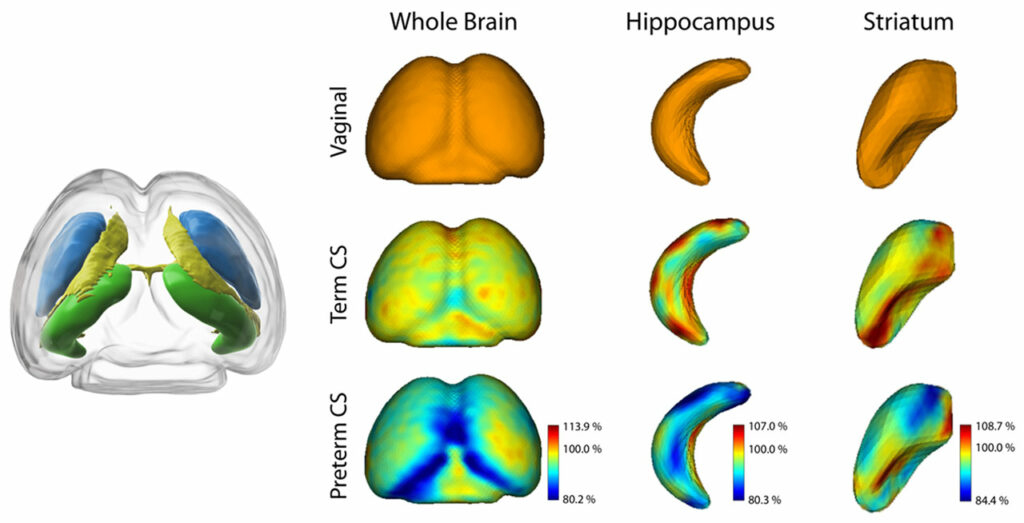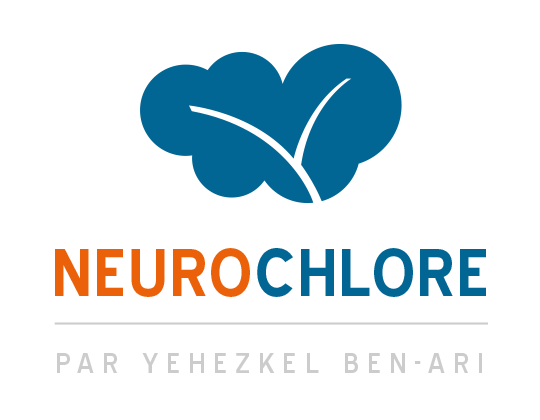News
Smaller brain volumes after birth by Cesarean Section
Being born is not easy. Mammals need to pass through the birth canal before coming out into this world, and to do so the head (and whole body) undergoes a harsh squeezing. Thankfully, the newborn prepares for this stressful event that transitions life from in-utero to ex-utero. But these events (some, or all of them) are bypassed when birthing happens by cesarean section delivery. In our recent work published in Cerebral Cortex, we investigated the early effect of cesarean section delivery on the brain. We found that on the day of birth mice born by cesarean section had smaller brains than mice born vaginally at term, independently of when they were born (at term, or preterm – 1 day before term). We also found that mice born preterm by cesarean section had different levels of cell-death and cell-activity in two different brain areas. Our results shed light on how changes in the way and/or time of being born affect early life brain developmental processes.

Modified from Chiesa et al., Cerebral Cortex, 2021
References : Chiesa M. et al. "Brain volumes in mice are smaller at birth after term or preterm cesarean section delivery. 2021. Cerebral Cortex in press".
Scientific papers
- Smaller brain volumes after birth by Cesarean Section 24 March 2021
- The GABA developmental sequence is altered in a mouse model of Rett Syndrome 26 June 2019
- No stop-growing signal around birth in a rodent model of autism 24 January 2019
- Immune activation during gestation leads to hippocampal neuronal alterations already at birth 4 November 2018
- A promising multicenter trial to alleviate autistic disorders 14 March 2017
- The diuretic Bumetanide and the birth hormone Oxytocin point to a common pathway in the early pathogenesis of Autism in rodents 26 February 2014
- Treating Fragile X syndrome with the diuretic bumetanide: a case report 10 June 2013
- A randomised controlled trial of bumetanide in the treatment of autism in children 11 December 2012
- The GABA excitatory/inhibitory shift in brain maturation and neurological disorders 18 October 2012

